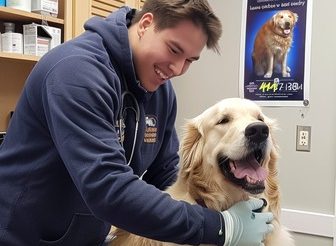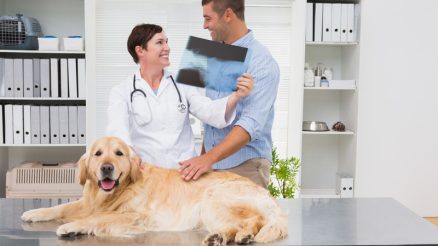Seeing our furry senior companions face surgery can be a daunting prospect. As our pets grow older, their bodies are not as resilient as they once were, which means extra care is needed to ensure their surgical procedures go smoothly. Whether it’s a routine operation or something more complex, being well-prepared can make all the difference to your senior pet’s health and recovery. We’re going to walk through the steps you should take to prepare your senior pet for surgery and provide some tips on postoperative care to help your companion bounce back as quickly as possible.
What are the Unique Needs of Senior Pets
Before we dive into the preparation steps, it’s important to understand that senior pets have different needs compared to younger ones. Their bodies might not heal as quickly, they could have underlying conditions, and they could be more sensitive to anesthesia. This is why a careful approach is essential.
Consult with Your Veterinarian
First things first, you’ll want to have a thorough conversation with your veterinarian. They’ll be able to assess your senior pet’s health and determine whether they’re a good candidate for surgery. Sometimes, pre-surgical blood tests are necessary to check for any hidden conditions that could complicate anesthesia or recovery.
Consider the Need for Special Accommodations
Depending on your pet’s condition, you might need to arrange for special accommodations pre- and post-surgery. This can include things like:
-
Temperature-controlled environments
-
Special bedding to prevent pressure sores
-
Easy access to food and water
Preparing for the Big Day
Once your vet gives the green light, it’s time to prepare your pet for surgery. Your vet will provide specific instructions, but here are some general guidelines.
Pre-Surgical Instructions
You’ll likely be advised to withhold food and water for a certain period before the surgery. This is to reduce the risk of aspiration during anesthesia. Make sure you’re clear on the timings; it’s a crucial part of preparation.
Creating a Stress-Free Environment
Stress can negatively affect your pet’s health, particularly before a surgical procedure. Keep them calm by maintaining a routine and providing plenty of comfort and reassurance. A stress-free environment will keep their hearts steady and minds at ease as the surgery approaches.
Transporting Your Senior Pet
Make sure you have a comfortable carrier or mode of transportation to bring your pet to the clinic. Senior pets might have joint pain or difficulty moving, so making the journey as comfortable as possible is key.
The Role of Professional Care Facilities
When you’re not able to be with your pet, professional care is invaluable. Contemporary solutions like overnight pet boarding for cats and dogs can be a boon, especially if your pet requires extended postoperative observation or you’re unable to provide round-the-clock care.
Finding the Right Facility
Search for a boarding facility with experience in caring for senior pets and postoperative cases. They should have trained staff, access to veterinary care, and the ability to cater to any specific recovery needs your senior pet might have.
Post-Surgery Veterinary Care
It’s no secret that veterinary care for senior cats requires a gentle touch and specialized knowledge. Your veterinarian will likely schedule follow-up appointments after the surgery to monitor recovery and address any complications should they arise. It’s important to attend these appointments and follow all veterinary advice during the healing process.
Making Your Home Ready for Recovery
After surgery, you’ll want to make sure your home is prepped for your senior pet’s recovery. It should be a quiet place where they can heal without disturbance. Consider setting up a recovery area that’s easily accessible and free from hazards like stairs or slippery floors.
Postoperative Care at Home
After your pet comes home from surgery, there will be a lot you need to attend to, including:
-
Administering medications
-
Keeping the surgical site clean
-
Managing your pet’s comfort with things like pain relief and warm blankets
-
Ensuring they don’t lick or bite at their stitches or bandages
You may also need to adapt your diet and exercise routine based on your vet’s recommendations. It’s all about creating a peaceful environment for them to regain their strength and health.
Local Resources and Support
In certain cases, your pet might require specialized surgical attention. Finding reputable local services for pet surgery in Gardena, CA, could provide the expertise your senior pet needs. Do your research, ask for recommendations, and choose a practice that’s equipped to handle the unique challenges of senior pet surgery.
Emotional Support for Your Pet
Never underestimate the power of emotional support. Your senior pet needs your love and presence as much as they need medical attention. And don’t forget to take care of yourself, too! It can be emotionally taxing to see your pet in a vulnerable state, so seek support from friends, family, or pet owner support groups if you need it.
Taking the Next Steps
Preparing for your senior pet’s surgery might feel overwhelming, but with the right steps and support, you can make their experience as smooth as possible. Never hesitate to ask your vet for advice or express any concerns you might have.
Final Thoughts
Getting your senior pet through surgery requires preparation, understanding, and a lot of love. Be aware of their unique needs, follow pre-surgical instructions to a tee, and ensure you have a recovery plan in place, considering professional care facilities or local veterinary services if necessary. With your support and diligent care, your senior companion can have a successful surgery and a comfortable recovery period.





